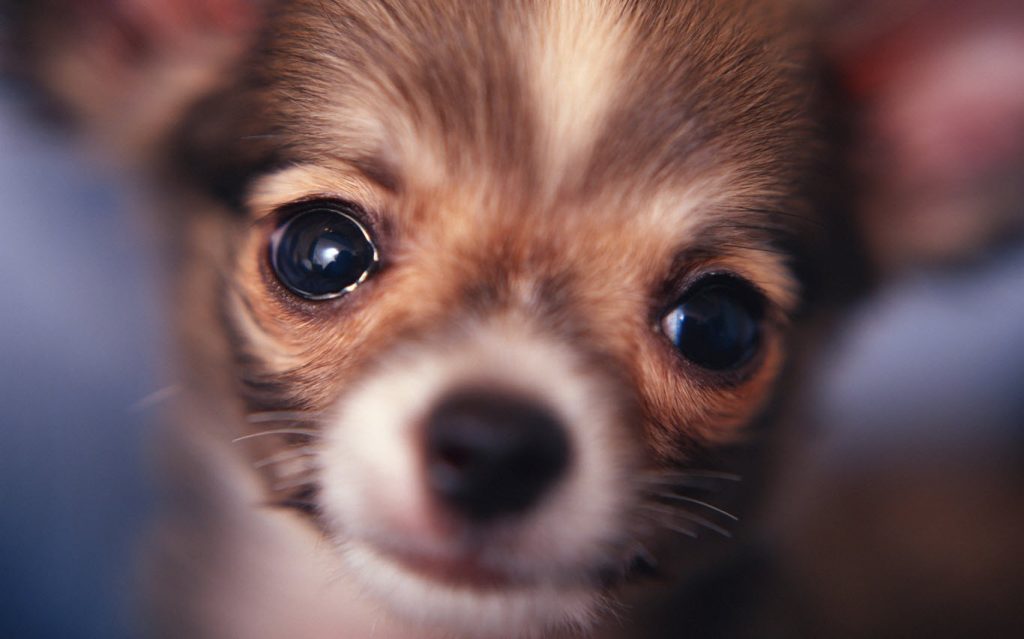
Chihuahua: The tiny marvel
The Chihuahua, named after the Mexican state of Chihuahua, is one of the oldest and smallest dog breeds in the world. Believed to have originated from ancient Techichi dogs, which were companion animals to the ancient Toltec civilization in Mexico, Chihuahuas were cherished by Aztec royalty. They were later brought to the United States and gained popularity in the late 19th century. This tiny breed is known for its bold personality and distinctive appearance, making it a favorite among dog lovers worldwide.
History and Origin of the Chihuahua
The history of the Chihuahua is both fascinating and ancient. These dogs are believed to have descended from the Techichi, a small companion dog that was kept by the Toltec civilization in Mexico as early as the 9th century. The Techichi was later bred with small hairless dogs from Asia, resulting in the breed we know today. Chihuahuas were highly prized by the Aztecs, who believed they had mystical powers, including the ability to guide souls to the afterlife. After the Spanish conquest of Mexico, the breed was nearly lost but was rediscovered in the Mexican state of Chihuahua in the mid-1800s. American tourists brought these charming dogs back to the United States, where they quickly gained popularity. The American Kennel Club (AKC) officially recognized the Chihuahua in 1904, cementing its place as a beloved companion animal.
Physical Characteristics of the Chihuahua
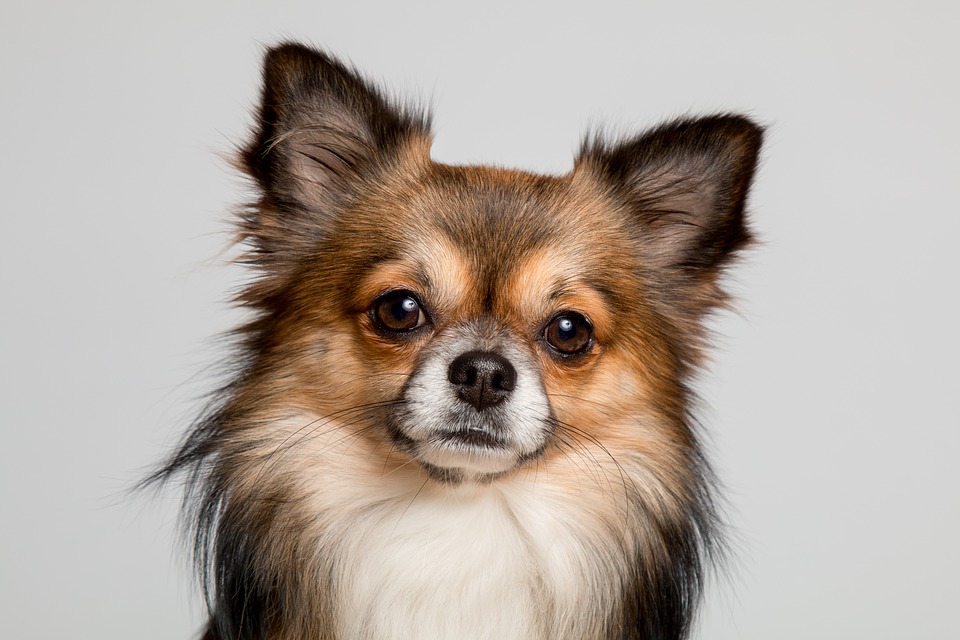
Chihuahuas are easily recognizable by their small size and distinct features. Key physical characteristics include:
- Size: Chihuahuas are the smallest dog breed, typically weighing between 2 to 6 pounds and standing about 5 to 8 inches tall at the shoulder.
- Coat: They come in two coat types: smooth (short) and long. The smooth coat is close-lying and glossy, while the long coat is soft and can be either straight or slightly wavy.
- Head: They have a distinctive «apple head» shape with a rounded skull and large, expressive eyes. There is also a «deer head» variety with a flatter skull.
- Ears: Large and upright, giving them an alert and curious expression.
- Body: Compact and well-balanced, with a level back and a gracefully arched neck.
- Tail: Moderately long, carried either sickle or looped over the back.
Personality and Temperament of the Chihuahua

Despite their small stature, Chihuahuas have big personalities. They are known for their:
- Boldness: Chihuahuas often exhibit a larger-than-life attitude, displaying confidence and assertiveness.
- Affection: They form strong bonds with their owners and enjoy being close to them, often following them around the house.
- Loyalty: Chihuahuas are fiercely loyal to their families and can be protective, making them excellent watchdogs.
- Playfulness: They are energetic and playful, enjoying interactive games and toys.
- Intelligence: Chihuahuas are smart and can be trained to perform tricks and follow commands, although they can be stubborn at times.
- Sociability: While they are affectionate with their families, Chihuahuas can be reserved or cautious around strangers and other animals.
Basic Needs of the Chihuahua
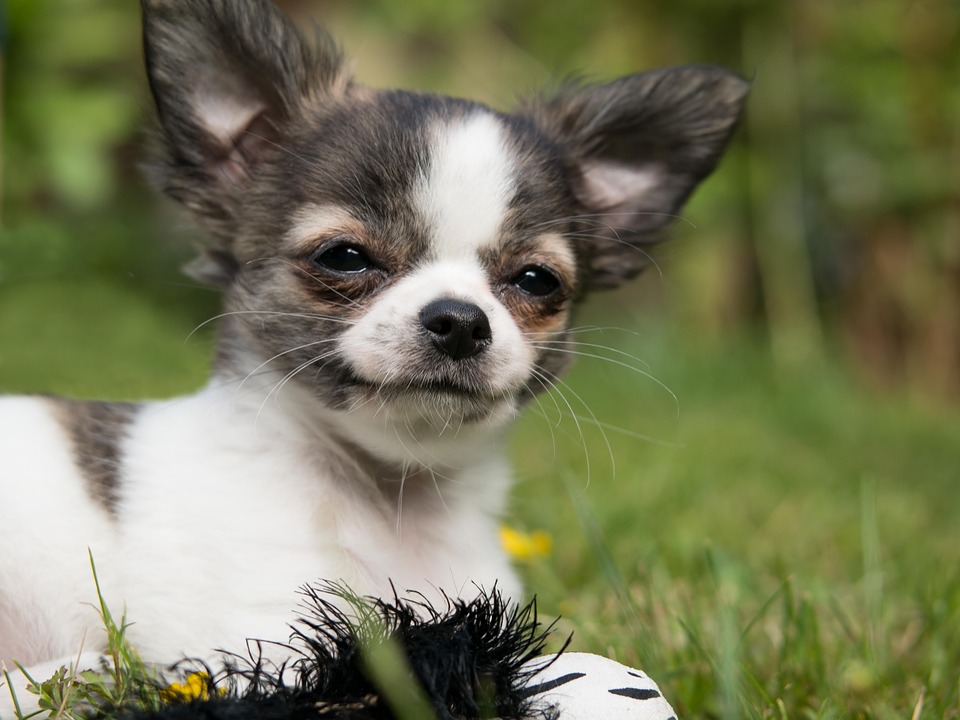
To ensure a Chihuahua remains healthy and happy, it’s essential to meet their basic needs:
- Diet: A balanced diet with high-quality dog food is crucial. Due to their small size, portion control is important to prevent obesity.
- Exercise: Regular exercise, including short walks and playtime, is necessary to keep them physically and mentally stimulated. Chihuahuas have bursts of energy but do not require extensive exercise.
- Grooming: Grooming needs depend on the coat type. Smooth-coat Chihuahuas require minimal grooming, while long-coat Chihuahuas need regular brushing to prevent tangles and matting. Regular dental care is also important due to their small mouths and tendency for dental issues.
- Healthcare: Routine veterinary check-ups, vaccinations, and preventive care are crucial to monitor their health and address any potential issues early.
Suitable Environment for the Chihuahua
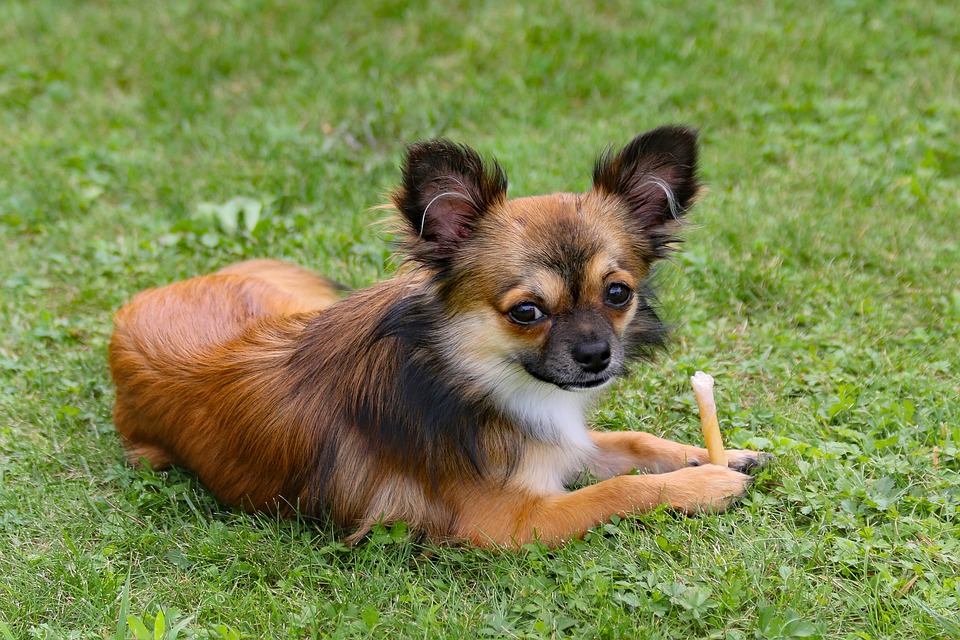
Chihuahuas are highly adaptable and can thrive in various living environments, from apartments to houses. Key considerations include:
- Space: While they do not need a large yard, Chihuahuas benefit from having space to play and explore. They are well-suited to apartment living due to their small size.
- Companionship: These dogs enjoy being with their families and can suffer from separation anxiety if left alone for long periods. They thrive in homes where someone is usually around or where there are other pets for company.
- Safety: Due to their small size and delicate build, it’s important to ensure they are safe from potential hazards, such as being accidentally stepped on or attacked by larger animals. Supervised outdoor time in a secure area is ideal.
Training and Care for the Chihuahua
Training a Chihuahua is generally straightforward due to their intelligence and eagerness to please. Tips for training and care include:
- Positive Reinforcement: Use treats, praise, and affection to encourage desired behaviors.
- Consistency: Establish routines for feeding, playtime, and grooming to help them feel secure and well-adjusted.
- Socialization: Early socialization is important to help them become well-rounded adults. Introduce them to different people, animals, and environments to reduce fearfulness and aggression.
- Enrichment: Provide a variety of toys, puzzles, and interactive games to keep them mentally and physically engaged.
Health and Common Issues in the Chihuahua
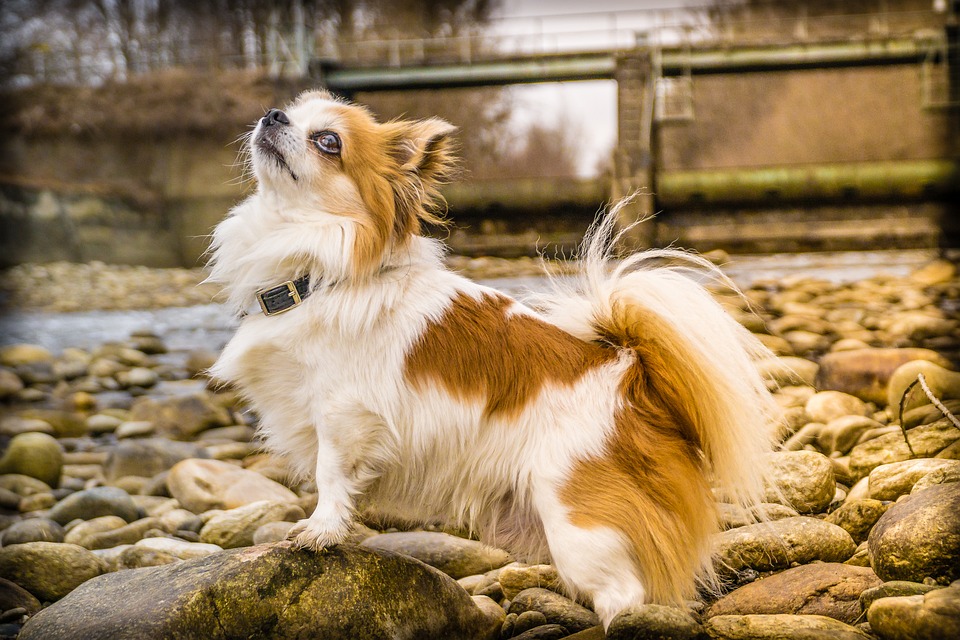
Chihuahuas are generally healthy, but they can be prone to certain health issues:
- Dental Disease: Due to their small mouths, Chihuahuas are prone to dental problems. Regular dental care, including brushing and professional cleanings, is essential.
- Patellar Luxation: This condition, where the kneecap dislocates, is common in small breeds and can lead to arthritis if not treated.
- Heart Disease: Chihuahuas are susceptible to heart conditions, including mitral valve disease. Regular veterinary check-ups are important for early detection and management.
- Hypoglycemia: Low blood sugar can be a concern in young or very small Chihuahuas. Frequent, small meals can help prevent this condition.
- Tracheal Collapse: Due to their small size, Chihuahuas are at risk of tracheal collapse, which can cause breathing difficulties. Using a harness instead of a collar can help reduce the risk.
Life Expectancy of the Chihuahua
The Chihuahua typically enjoys a long and healthy life, with an average lifespan of 12 to 20 years. Providing them with a balanced diet, regular exercise, and routine veterinary care can help ensure they live a healthy and fulfilling life.
The Chihuahua in Daily Life
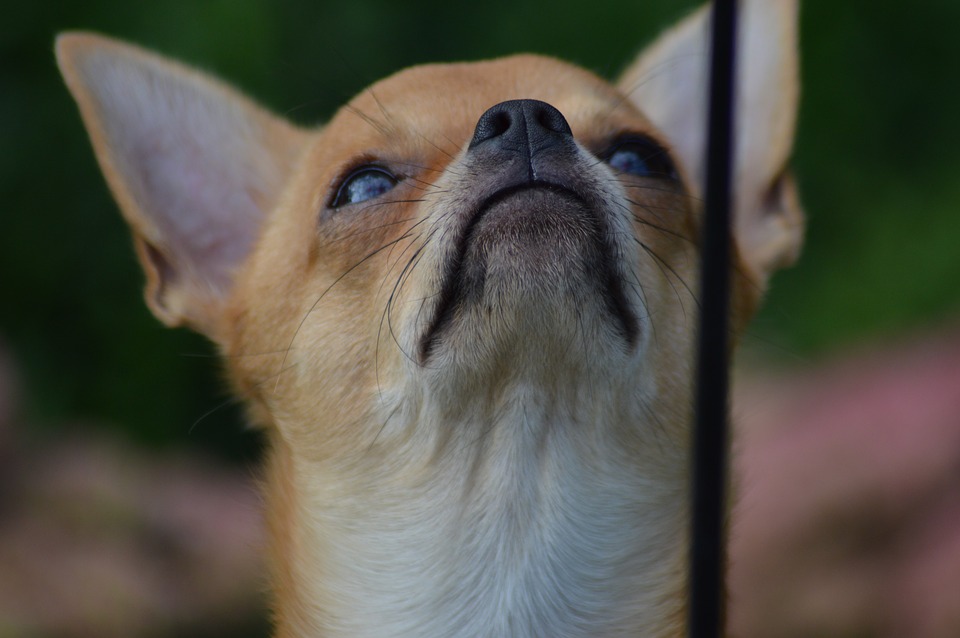
Having a Chihuahua in your home brings a unique blend of energy, loyalty, and companionship. These dogs are incredibly active and enjoy participating in daily activities with their human companions. Their bold and affectionate nature means they enjoy spending time with their owners, often following them around the house and engaging in playful antics. Chihuahuas are also known for their vocalizations, often using their distinctive bark to communicate with their families.
Frequently Asked Questions (FAQs)
How to Identify a Chihuahua?
Identifying a Chihuahua involves looking for several key characteristics:
- Size: The smallest dog breed, typically weighing between 2 to 6 pounds.
- Coat Types: They come in smooth (short) and long coat varieties.
- Head Shape: They have an «apple head» or «deer head» shape with large, expressive eyes.
- Ears: Large and upright.
- Personality: Bold, affectionate, and often vocal.
1. What is the origin of the Chihuahua?
Chihuahuas are believed to have descended from the ancient Techichi dogs of the Toltec civilization in Mexico and were later cherished by Aztec royalty.
2. Are Chihuahuas good with children and other pets?
Chihuahuas can be good with children and other pets if properly socialized from a young age. However, due to their small size, they should be handled gently to prevent injury.
3. How much grooming does a Chihuahua require?
Grooming needs depend on the coat type. Smooth-coat Chihuahuas require minimal grooming, while long-coat Chihuahuas need regular brushing to prevent tangles.
4. Do Chihuahuas have any common health issues?
Yes, Chihuahuas can be prone to dental disease, patellar luxation, heart disease, hypoglycemia, and tracheal collapse.
5. How much exercise does a Chihuahua need?
Chihuahuas need regular exercise, including short walks and playtime, to stay healthy and stimulated. They do not require extensive exercise due to their small size.
6. What is the lifespan of a Chihuahua?
The average lifespan of a Chihuahua is 12 to 20 years.
7. Are Chihuahuas vocal?
Yes, Chihuahuas are known for their distinctive bark and can be quite vocal, often using their bark to communicate with their families.
8. What type of diet is best for a Chihuahua?
A balanced diet with high-quality dog food is crucial to support their health. Portion control is important to prevent obesity.
9. Can Chihuahuas be trained?
Yes, Chihuahuas are intelligent and can be trained to perform tricks and follow commands using positive reinforcement techniques.
